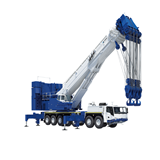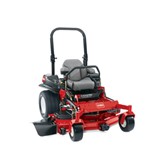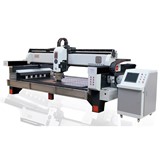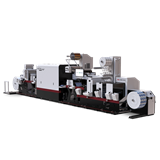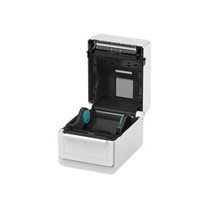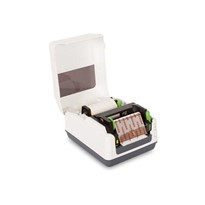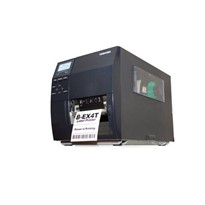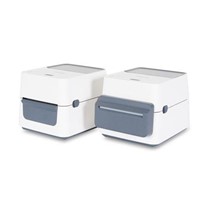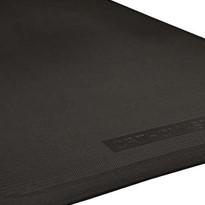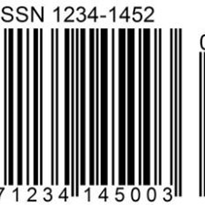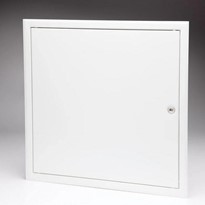Barcodes are essential to the smooth, efficient and compliant running of a healthcare facility. Barcode labels are used to uniquely identify patients, pathology samples, radiography and other diagnostic reports, medications, and assets, from wheelchairs, to computers.
Labeling contributes to many aspects of the healthy functioning of a medical facility:
- Safety – ensuring that patients are given the correct diagnoses and medication
- Efficiency – sharing data that enables seamless transfer of patients between departments and freeing up staff time to focus on care.
- Electronic Health Records (EHR) management and patient administration – enabling digital patient records to be created and managed.
- Cost management – tracking assets to minimise loss and time spent searching.
- Compliance – ensuring the facility meets the demands of a highly regulated industry.
Choosing the right barcode label printer
Printing those barcodes onto labels is therefore an important process in a medical facility – ensuring that people, records and equipment can quickly and easily be identified. So the choice of printer is important, and the selected technology must be able to meet a range of demands, including:
- Choice of label media – healthcare facilities need to be able to print barcodes onto patient wristbands, paper labels for charts and records, specialist labels that can withstand processing, for blood and samples and RFID labels for tracking. Labels come in a range of materials, and sizes – to fit the smallest pill jar or the largest piece of equipment.
- High-speed printing – when creating or updating patient records, or labeling samples or medication, staff don’t have the time to wait for slow or delayed printing, especially when multiple labels are needed at a time.
- Durability – healthcare label printers are not typically used in an office environment – they’re in a busy hospital or practice, maybe close to liquids/chemicals or with the chance of being knocked or dropped. They have to be tough enough to continue working in this environment.
- User-friendly – barcode label printers are used by a range of medical and administrative staff, who are not technology experts. They have to be straightforward and intuitive to use.
- EHR certification – the printer must be able to use software that integrates into the facility’s chose EHR system, such as Cerner.
- Compliance – the label printer plays an important part in meeting regulations – for example, by printing labels that don’t smudge or fade, and remain fully legible.
- Support and consumables – such a vital piece of equipment needs to be always available, so support, maintenance and swap out is vital, as is the easy replacement of consumables such as ribbon and labels.
- Compliant – aligned with industry regulations.
Toshiba – a healthy choice
For all these reasons and more, Toshiba label printers are the choice for businesses in the medical industry.
They can handle a wide range of media, with the ability to print on paper, synthetic, RFID and thermal transfer labels, which can be used to label products and equipment throughout the medical facility. This makes them an ideal solution for labeling medical products, equipment, and documents such as patient charts and test results.
Toshiba label printers are fast, and can print multiple labels in seconds, freeing staff to focus on patients.
They are durable enough to withstand the rigours of a hospital, clinic or GP practice and are designed to be durable and reliable. They’re designed to perform under the constant pressure of a busy medical facility and continue to function effectively even with heavy use.
Toshiba label printers come with a variety of easy to use software options that can be customised to meet the needs of each specific healthcare facility – with features including label design software, printer management software, and barcode printing software. This allows medical professionals to easily operate and maintain the printers, saving time and reducing the risk of errors.
When it comes to EHR, the most widely used system in Australia is Cerner. Toshiba label printers are Cerner certified, which means that they have been tested and approved by Cerner to be fully compatible with their EHR systems. This ensures that the printers will be able to seamlessly integrate with Cerner and can be easily connected to other devices in the facility, such as computers, mobile devices, and barcode scanners. This allows for easy and efficient data transfer, enabling medical professionals to quickly print labels for patient charts, medication, and lab samples.
Toshiba provides excellent technical support and maintenance, and ready supply of ribbons and labels, to keep their printers running in top condition. Medical professionals can be sure they have a dependable and efficient labelling solution for their facility.
Toshiba label printers are fully compliant with the regulations and guidelines of ANZ regulatory bodies such as Therapeutic Goods Administration (TGA) and the Australian Register of Therapeutic Goods (ARTG), ensuring that the medical facility can create accurate and compliant labels, reducing the risk of non-compliance and potential legal issues.
In conclusion, Toshiba label printers are an excellent choice for businesses in the medical industry. They support the essential healthcare function of printing barcodes for a wide range of uses, which in turn helps facilities to run efficiently and cost effectively, meet regulations and above all, keep patients safe.


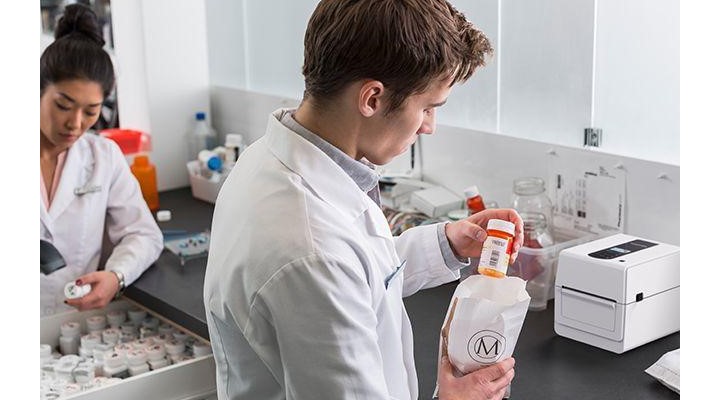

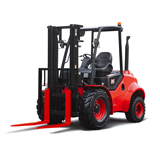
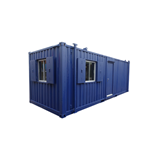
-160x160-state_article-rel-cat.png)







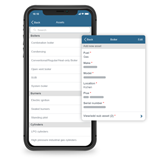
-160x160-state_article-rel-cat.png)
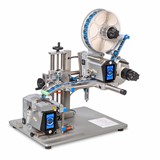

-160x160-state_article-rel-cat.png)
